Biology DivisionLaboratory of Microbial Carcinogenesis
Research Outline
The research purpose of our laboratory is to elucidate the elementary processes of vital reactions by making full use of techniques based on molecular biology, biochemistry (enzymology), and cell biology. We promote original drug discovery research based on the results obtained in our studies. Furthermore, we provide technical support for the drug discovery research of IMC by developing experimental systems that can verify the mode of action of novel compounds. In particular, we are elucidating the elementary processes underlying the systems of viral and intractable diseases and have developed new agents against these diseases.
Members
Please replace [at] in the email address with @, the at symbol.
Laboratory Head Masanori Hatakeyama mhatakeyama[at]bikaken.or.jp »Biography

Laboratory Head Takao Shimizu tshimizu[at]bikaken.or.jp
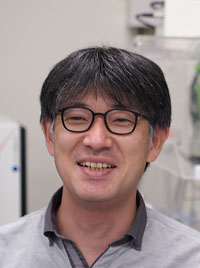
Senior Researcher Naoki Takizawa takizawan[at]bikaken.or.jp

Senior Researcher Takeru Hayashi thayashi[at]bikaken.or.jp
| Researcher | Masayuki Arakawa |
| Researcher | Ippei Kikuchi |
| Researcher | Manabu Yamasaki |
| Postdoctoral Researcher | Takuya Ooki |
| Postdoctoral Researcher | William J. Valentine |
| Project Researcher | Kunitada Shimotohno |
| Technical Staff | Atsumi Ito |
| Technical Staff | Yukiko Iwata |
| Technical Staff | Yui Yamamoto |
| PhD Student | Kazuhiro Niwa |
Themes
- H. pylori infection and gastric cancinogenesis
- Analyzing mechanism of virus propagation and exploration of inhibitors for viral growth with a focus on natural products
- Research on the chronic infection of Hepatitis B virus (HBV).
- New therapeutic strategy: Targeting neuromuscular junction (NMJ) to Neuromuscular diseases
Theme outlines
1. H. pylori infection and gastric cancinogenesis
Helicobacter pylori (H. pylori), a spinal-shaped bacterium that colonizes the human gastric mucosa, is estimated to inhabit at least half of the world’s human population. Since its first report in 1982 by Marshall and Warren, H. pylori has been recognized as the etiological agent of gastric diseases such as chronic atrophic gastritis and peptic ulcers. However, some of the H. pylori-infected individuals develop gastric diseases because many of those have no diseases. We have demonstrated that infection with cagA-positive Helicobacter pylori is causatively associated with the development of gastric carcinoma. Our laboratory is focusing on the oncogenic mechanism of CagA in terms of the mechanism of carcinogenesis initiated by H. pylori infection.
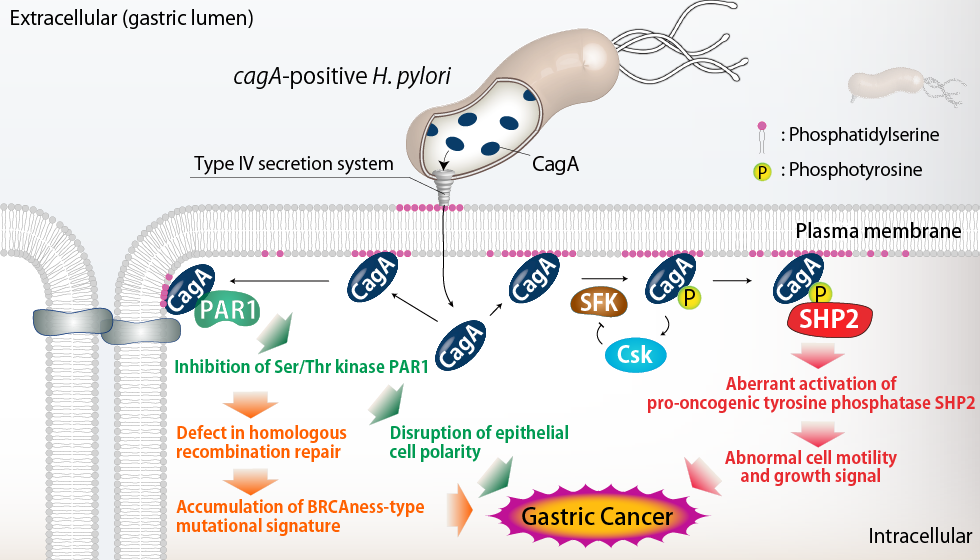
2. Analyzing mechanism of virus propagation and exploration of inhibitors for viral growth with a focus on natural products
We conduct basic research on mechanisms of virus propagation using virological, biochemical, cell biological, and bioinformatics methods. Using the knowledge obtained through basic research, we aim to discover novel antiviral drugs by screening natural products for their antiviral activity, conducting structural biological analysis of the obtained compounds, and synthesis of derivatives in collaboration with other departments (A). The isolated compounds are also subjected to detailed mode-of-action analysis, aiming not only to develop antiviral drugs but also to elucidate the mechanisms of viral propagation. Currently, we are mainly targeting influenza viruses and isolating compounds that inhibit the growth of influenza viruses from our own compound library and natural product library (B). Basic research on influenza virus propagation analysis focuses on the function of viral genome RNA. We have identified novel viral RNA secondary structures based on comprehensive analysis of RNA secondary structures formed on the influenza virus genome, and are investigating the functions of these RNA secondary structures in viral propagation and their potential as drug targets (C).
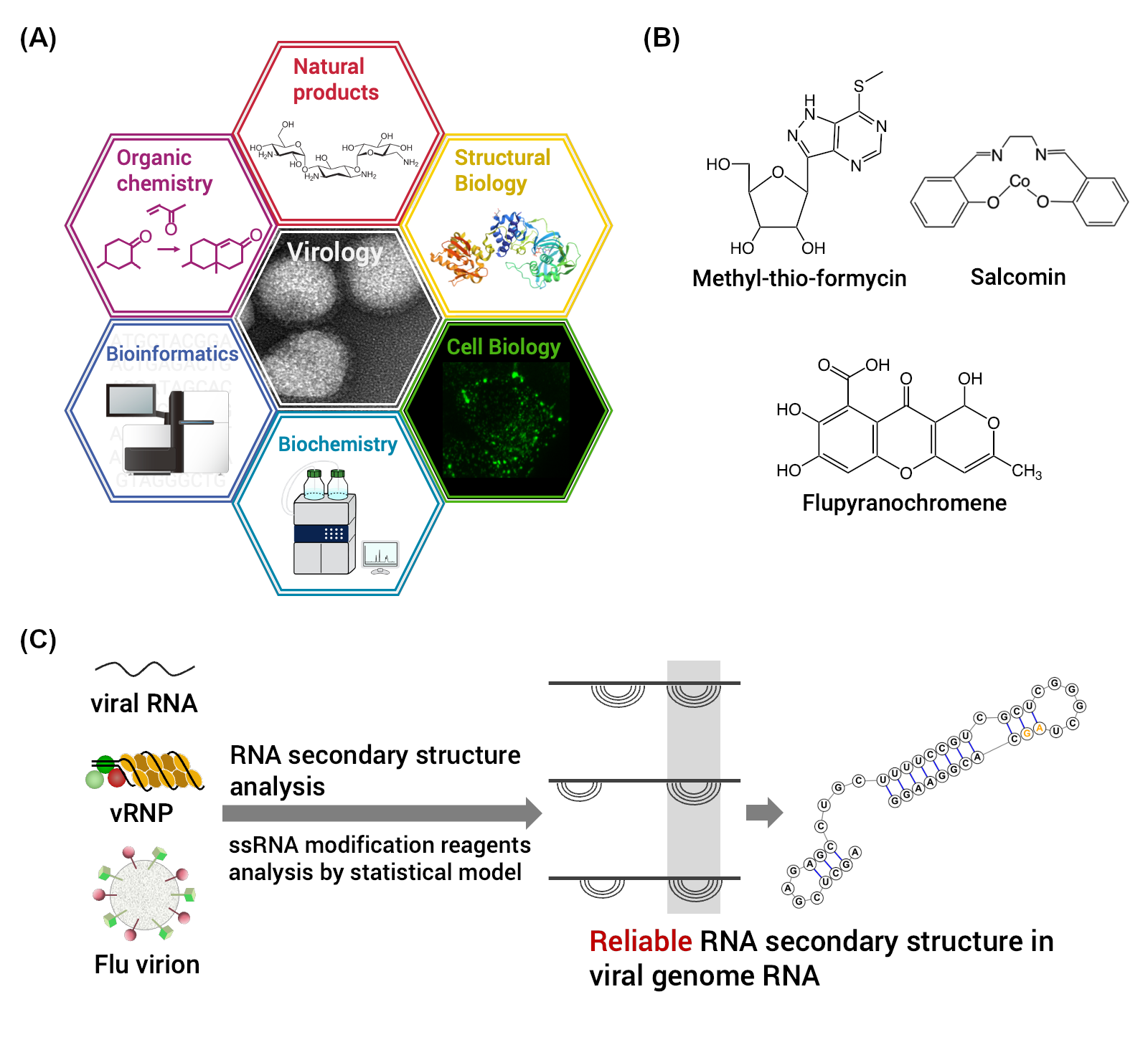
3. Research on the infection of Hepatitis B virus (HBV).
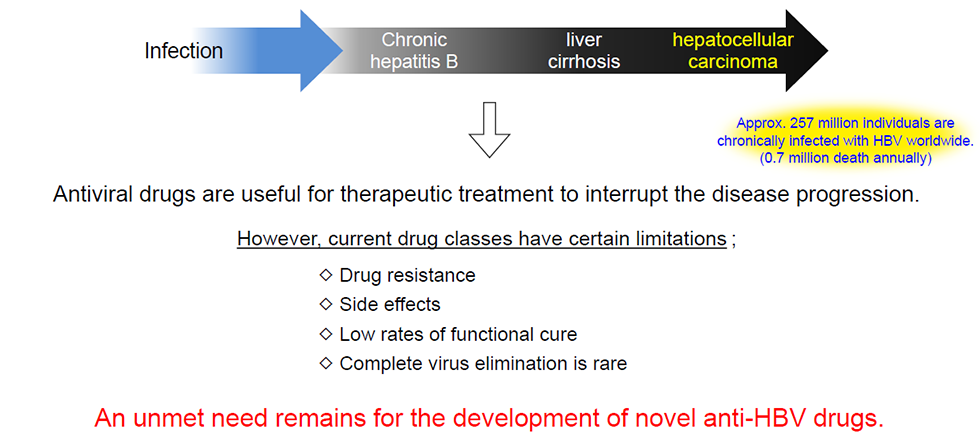
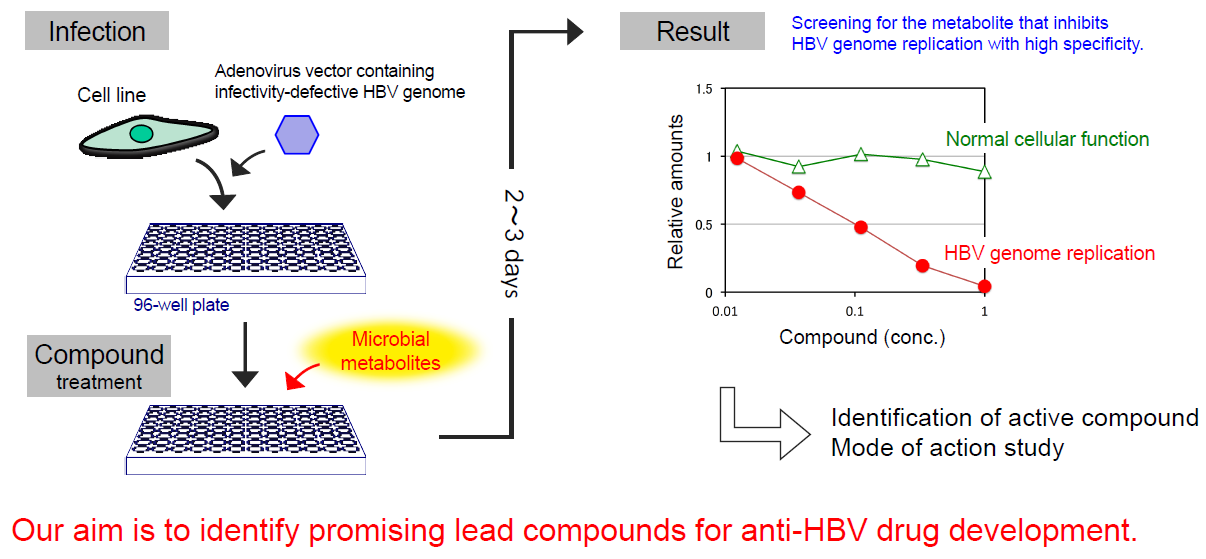
4. New therapeutic strategy: Targeting neuromuscular junction (NMJ) to Neuromuscular diseases
Screening of natural products for the discovery of drugs relating to Neuromuscular diseases.
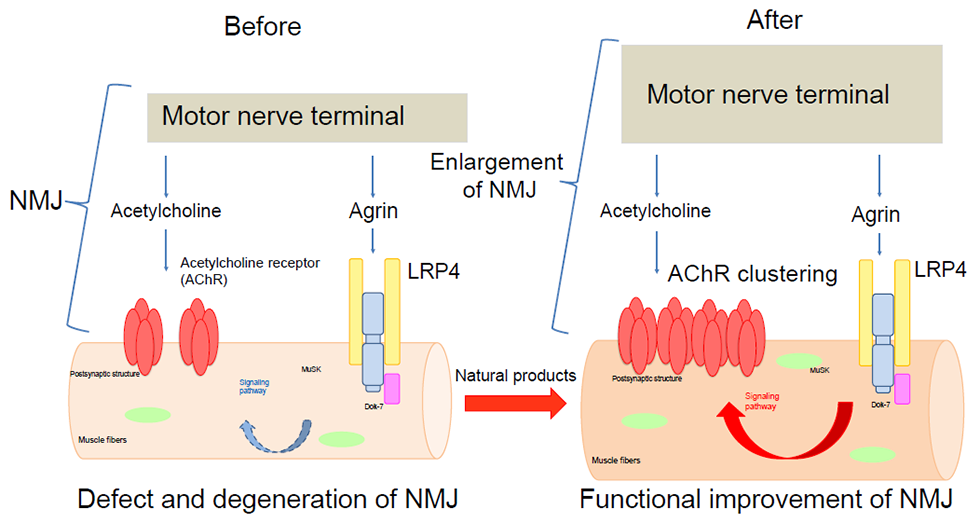

 +81-3-3441-4173
+81-3-3441-4173  office@bikaken.or.jp
office@bikaken.or.jp